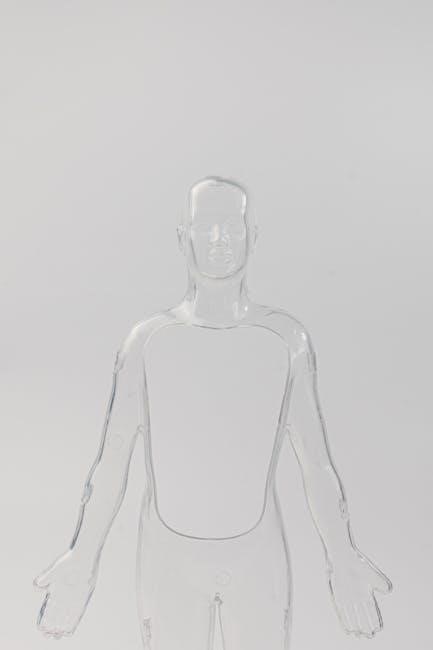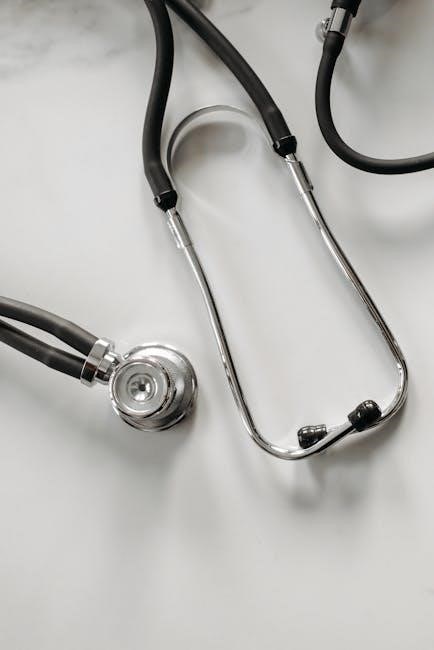Fundamentals of Nursing: A Comprehensive Overview
This section offers a concise overview of fundamental nursing concepts. It leverages readily available online resources like downloadable PDF ebooks and study guides, enhancing accessibility for nursing students seeking foundational knowledge.
Nursing fundamentals establish the bedrock for aspiring nurses, encompassing essential knowledge and skills. Freely available online resources, such as PDF textbooks and study materials, offer accessible introductions to core concepts. These resources often cover basic patient care techniques, ethical considerations, and communication skills. Understanding these fundamentals is crucial for providing safe and effective patient care. Nursing practice integrates scientific knowledge with compassionate care, shaping the foundation for professional development. Introductory materials emphasize the importance of critical thinking and evidence-based practice. Exploring introductory guides on pharmacology, anatomy, and physiology provides a broader understanding of healthcare principles. Accessing supplementary online exercises and study tools enhances comprehension and prepares students for clinical practice. This introductory phase sets the stage for advanced learning and specialization in various nursing fields. Furthermore, it underscores the dedication and commitment required for a successful nursing career.

Core Concepts in Nursing Practice
This section delves into vital concepts shaping nursing practice. Ethical considerations, patient-centered care, and evidence-based methodologies will be explored, all underpinned by readily accessible resources, including downloadable PDF guides.

The Art and Science of Nursing
Nursing embodies a unique blend of scientific knowledge and compassionate care. It’s a profession grounded in evidence-based practices, constantly evolving with medical advancements, and easily available through resources like downloadable PDF files. This scientific foundation ensures nurses deliver safe and effective treatments, utilizing critical thinking and problem-solving skills.
However, nursing transcends mere technical expertise; it’s an art form that demands empathy, intuition, and strong interpersonal skills. Establishing trusting relationships with patients, understanding their emotional needs, and providing holistic support are crucial aspects of nursing practice. This involves active listening, effective communication, and cultural sensitivity. Nurses must adapt their approach to each individual, recognizing their unique circumstances and preferences.
The art of nursing also encompasses creativity and resourcefulness, finding innovative solutions to complex patient challenges. It demands flexibility, adaptability, and a commitment to lifelong learning. By integrating scientific knowledge with artistic qualities, nurses provide comprehensive care that addresses the physical, emotional, and spiritual well-being of their patients, referencing fundamentals of nursing PDF resources.
Ethical Considerations in Nursing
Nursing practice is deeply rooted in ethical principles that guide decision-making and ensure patient well-being. Autonomy, beneficence, non-maleficence, and justice are cornerstones of ethical nursing care, often detailed in fundamentals of nursing PDF resources.
Autonomy emphasizes respecting patients’ rights to make informed decisions about their healthcare, even if those decisions differ from the nurse’s own beliefs. Beneficence requires nurses to act in the best interests of their patients, promoting their health and well-being. Non-maleficence dictates that nurses must avoid causing harm, carefully weighing the risks and benefits of interventions. Justice demands fairness and equity in the distribution of healthcare resources, ensuring all patients receive equal access to care.
Ethical dilemmas often arise in nursing practice, requiring careful analysis and thoughtful consideration. Nurses must navigate complex situations involving conflicting values, cultural differences, and legal requirements. Consulting with ethics committees, seeking guidance from experienced colleagues, and utilizing ethical frameworks can help nurses make sound ethical decisions that uphold patient rights and promote ethical practice. Free PDF resources on nursing fundamentals often address these considerations.

Essential Skills for Nurses
Nurses require a diverse skillset; From patient assessment to medication administration, proficiency is key. Fundamentals of nursing PDF resources offer guidelines, ensuring competent and safe patient care practices.
Patient Assessment Techniques

Patient assessment is a cornerstone of nursing practice. Comprehensive assessments involve gathering subjective and objective data to identify patient needs. Fundamentals of nursing resources, including PDF downloads, detail essential assessment techniques. These techniques encompass vital signs monitoring, physical examinations, and detailed health history collection. Accurate assessment guides the development of effective care plans.
Observation skills are paramount; nurses must discern subtle changes in patient condition. Palpation, percussion, and auscultation are key physical examination skills. Effective communication is crucial for eliciting accurate patient information. Recognizing normal and abnormal findings is essential for identifying potential health problems.
PDF study guides offer valuable tools for mastering assessment techniques. These resources provide step-by-step instructions and illustrative examples. Regular practice and application of these skills improve accuracy and confidence. Thorough patient assessment forms the foundation for safe and effective nursing care.

Medication Administration Guidelines
Safe medication administration is a critical nursing responsibility. Fundamentals of nursing PDFs emphasize adherence to established guidelines. The “five rights” – right patient, right drug, right dose, right route, right time – are paramount. Thorough knowledge of pharmacology is essential for understanding drug actions and side effects. Medication orders must be verified for accuracy and completeness.
Accurate dosage calculation is crucial to prevent medication errors. Nurses must be proficient in using various measurement systems. Understanding different routes of administration, such as oral, intravenous, and intramuscular, is vital. Patient education regarding medications is an integral part of the process.
PDF resources provide detailed information on medication administration procedures. These resources often include checklists and flowcharts to guide nurses. Proper documentation of medication administration is essential for maintaining patient safety. Nurses must be vigilant in monitoring patients for adverse drug reactions. Continuous learning and updates on medication guidelines are crucial for competent practice.

Key Areas of Patient Care

Patient care encompasses diverse areas vital to well-being. These key areas include hygiene practices, wound management, and comfort measures, as detailed in readily available nursing fundamentals PDF resources.
Hygiene and Comfort Measures
Maintaining patient hygiene and ensuring comfort are paramount in nursing care. These measures are fundamental to preventing infections, promoting healing, and enhancing overall well-being. Nurses must employ a holistic approach, considering each patient’s unique needs and preferences when implementing hygiene and comfort protocols. This includes assisting with bathing, oral care, and skincare, while also addressing environmental factors such as room temperature and lighting.
Comfort measures encompass pain management, proper positioning, and emotional support. Nurses play a crucial role in assessing patient discomfort and implementing appropriate interventions, whether pharmacological or non-pharmacological. Creating a safe and supportive environment is essential for fostering trust and promoting relaxation. Utilizing resources like free downloadable PDFs on nursing fundamentals can provide valuable insights into best practices for hygiene and comfort measures, ensuring that nurses are equipped to deliver optimal patient care. By prioritizing these essential aspects, nurses contribute significantly to the patient’s physical and emotional recovery. The integration of these practices underscores the art and science of nursing.
Wound Care Management
Effective wound care management is a critical aspect of nursing practice, requiring a comprehensive understanding of wound healing processes, infection control, and appropriate dressing techniques. Nurses are responsible for assessing wounds, identifying potential complications, and implementing evidence-based interventions to promote healing and prevent further injury. This includes meticulous cleaning, debridement when necessary, and the selection of appropriate wound dressings based on the wound’s characteristics and stage of healing.
Furthermore, nurses play a vital role in educating patients and their families about wound care procedures, signs of infection, and preventive measures. Access to resources such as downloadable PDF guides on nursing fundamentals can provide valuable information on wound assessment, dressing changes, and infection control protocols. Proper documentation and communication with the healthcare team are essential for ensuring continuity of care and optimal patient outcomes. By adhering to established guidelines and utilizing available resources, nurses can effectively manage wounds, minimize complications, and improve the overall quality of life for patients with acute or chronic wounds. This multifaceted approach underscores the critical thinking and clinical skills required in nursing.

Resources for Nursing Students
This section highlights valuable resources for nursing students. It includes free online study tools, downloadable materials in PDF format, and diverse nursing education options to support academic success.
Free Online Study Tools and Exercises
To bolster your comprehension of nursing textbook content and enhance exam preparedness, explore a wealth of free online study tools and exercises. These resources are designed to deepen your understanding of critical concepts and facilitate better performance in class. Leverage interactive quizzes, engaging animations, and comprehensive study guides accessible in PDF format.
Supplement your learning with materials covering a broad spectrum of topics. This includes pharmacology fundamentals, patient evaluation techniques, and essential skills. Access free ebook downloads and online texts to reinforce your knowledge. Integrate these resources into your study routine to apply learned concepts effectively.
Furthermore, consider exploring NCLEX-style chapter quizzes and 3-D animations. These resources are designed to simulate real-world scenarios and exam conditions. By actively engaging with these online tools, nursing students can build a solid foundation and excel in their academic pursuits.
Nursing Education Types and Downloadable Materials
Explore the diverse landscape of nursing education types, including ADN, BSN, and advanced practice programs. Access a variety of downloadable materials, such as PDF guides, Powerpoint presentations, and Word documents, to support your learning journey. These resources often cover fundamental nursing concepts, patient care techniques, and ethical considerations.
Downloadable materials provide convenient access to essential information, allowing you to study anytime, anywhere. Explore resources like “Fundamentals of Nursing” ebooks and study guides. These materials cover a wide range of topics from basic nursing skills to advanced medical concepts.

Take advantage of free downloads to supplement your formal education. Use these resources to reinforce your understanding and enhance your clinical competence. By exploring different types of nursing education and accessing downloadable materials, students can tailor their learning and achieve success. Look for materials like Fundamentals of Nursing 11th Edition Archer Knippa PDF.

